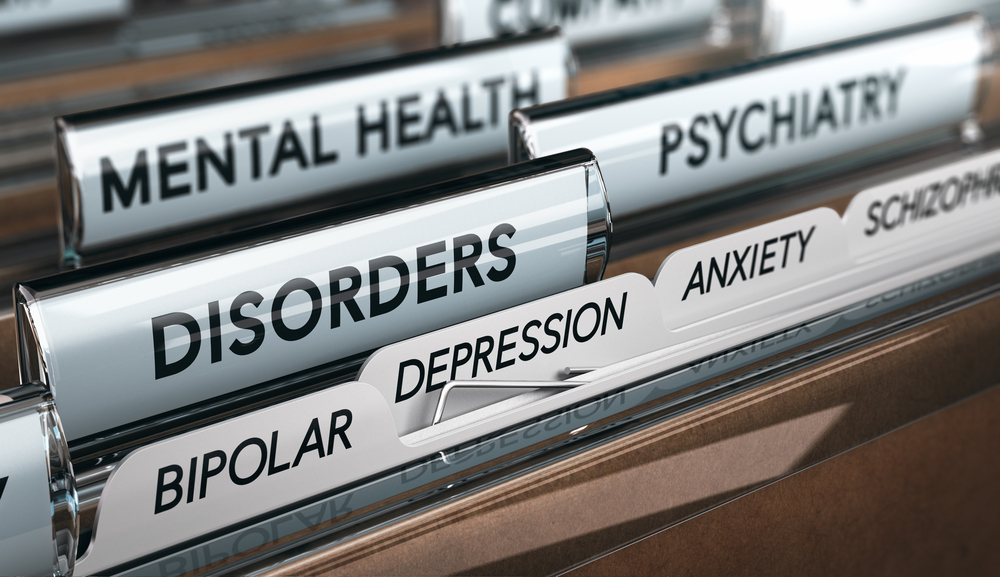
Mental health is one of the most important factors that people can take into consideration.
Mental health disorders can negatively affect other areas of our lives. Even though people have different susceptibilities to these disorders, everyone can be affected.
Youth are especially vulnerable to mental health issues, partly due to the changes that happen to their minds and bodies. The most common disorders among youth include bipolar disorder, eating disorders, OCD and addiction, among others.
Bipolar Disorder
About 1% of Canadians aged above 15 have been diagnosed as bipolar, according to an estimate by the Canadian federal government.
Bipolar disorder is usually associated with extremely polarized emotions, which explains the name. These extremes include manic and low stages, which are complete opposites.
Mania is usually characterized by euphoria, high energy, or heightened reactions. Hypomania is almost similar to mania except with less extreme changes.
Lows, on the other hand, are associated with depressive stages. These show low energy and a lack of desire or motivation to act.
Symptoms and Types 
There are several distinct types of bipolar disorder.
These are usually classified based on the existing cycles of mania and depression seen in a person.
Some of the most notable types include the following:
- Bipolar I: In bipolar I, manic episodes are followed by a depressive episode. This pattern can sometimes be in reverse in some people.
- Bipolar II: In this type of bipolar disorder, no manic episodes are evident. However, manic and hypomanic episodes are prevalent.
- Other types: There are also other types. An example is cyclothymic, which is characterized by repeated depressive episodes. These can be due to drugs or lifestyle choices.
Since the cycles dictate the type, it is essential to note the symptoms of both mania and depressive episodes.
Some of the most symptoms to watch out for are the following:
- Mania: Being extremely energetic is the most common symptom. It leads to high activity levels, talkativeness, difficulty concentrating, risky behaviour, and more. Lower time for sleep is also sometimes seen.
- Depressive episode: As the name implies, a depressive mood is the most telling symptom. It leads to low energy, lack of motivation, fatigue, and difficulty concentrating. Negative or intrusive thoughts and emotions are also common in depressive episodes.
Impacts of Bipolar Disorder
Bipolar disorder is a severe issue that profoundly impacts one’s normal way of life.
A teen’s normal routines, for example, can be heavily impacted.
Academics and relationships are severely affected. Coping mechanisms are necessary for the person to be able to return to normal and address the issues at hand. These can be done through counselling and other methods.
Eating Disorders
 As such, improper eating habits can drastically change your physical and mental well-being.
As such, improper eating habits can drastically change your physical and mental well-being.
Unfortunately, disorders related to eating habits also exist and can become problematic since these affect many aspects of health. These eating disorders are common in youth, where body image is usually a concern.
Symptoms and Types
There are many different types of eating disorders recognized by the psychology profession.
Many of these mostly relate to changes in eating habits or abnormal eating patterns.
Some symptoms include food avoidance, binge sessions, purging, extreme fear of weight gain and more.
Among the most notable eating disorders are the following:
- Anorexia nervosa: Anorexia is a disorder that is primarily characterized by a fear of gaining weight. Those with anorexia may resort to extreme measures to prevent weight gain. Excessive exercise, use of weight loss medications, and other efforts are common.
- Bulimia nervosa: Bulimia is characterized by a binge-and-purge cycle. Binging involves an uncontrolled consumption of large amounts of food. It is often followed by getting rid of the consumed calories unhealthily, often through forced vomiting.
- Avoidant food intake disorder: This disorder involves a reduced nutrient intake due to a lack of interest in eating. It can be due to aversion to food or fear of what may happen after eating. One notable difference that this disorder has from others is that weight gain is usually not a concern.
Impact of Eating Disorders
Eating disorders can severely impact many aspects of life.
That is primarily because an improper diet has multiple consequences on physical health.
It can further spiral into other problems. Among the most notable consequences or outcomes of eating disorders are the following:
- Excessive weight gain and weight loss
- Cardiovascular problems
- Impact on stress
- Self-esteem problems and body image issues
- Many others
Proper nutrition and psychological counselling can help mitigate the adverse effects of eating disorders. Of course, the methods done should be modified to address the type of eating disorder in question.
OCD – Obsessive-Compulsive Disorder
Many people have false assumptions about obsessive-compulsive disorder (OCD). The way it is normally portrayed in media shows repeated  obsessive actions, usually on organizing things.
obsessive actions, usually on organizing things.
While it is true that extreme excessive organizing can be a sign of OCD, the disorder is a lot more than just that.
OCD is a serious condition, especially in youth, since it can be a serious cause of stress. The presence of excess stress can lead to further problems.
Signs and Symptoms
People with OCD exhibit many distinct patterns of thought and behaviour caused by the disorder. These are usually classified into obsessions and compulsions.
Obsessions are related to thoughts that cause stress.
Compulsions, on the other hand, are related to the need to perform repeated behaviour.
Some of the examples of signs and symptoms to watch out for are the following:
- Obsession: Some examples include fear of dirt and an obsession with symmetry or alignment of objects. Lingering on possible unfinished responsibilities like turning off the stove or the faucet can also be a sign.
- Compulsion: Examples include excessive cleaning and organizing, repeated behaviour done for no good reason, and more.
Both obsessions and compulsions are thematic and may vary from person to person. Not everyone will have the same patterns for OCD.
Impact of OCD
OCD can introduce a lot of unwanted thoughts and behaviours to a person’s life.
Some of the most notable impacts include the following:
- Excessive stress
- Intrusive thoughts
- Failure to perform responsibilities due to obsessions and compulsions
- Low self-esteem
- Social problems
Identifying triggers and the effects of OCD can help a person cope with the symptoms efficiently. One of the best and most effective ways of doing so is through therapy.
Addiction
 Addiction is considered a disorder due to the effects it has on a person’s physical and mental well-being.
Addiction is considered a disorder due to the effects it has on a person’s physical and mental well-being.
There is a social stigma associated with addiction, and it is usually viewed in an excessively negative light. That, however, should not change the fact that people with addictions are sick and need help.
Fortunately, this disorder is not beyond a solution, and counselling can address it.
Types and Symptoms of Addiction
Addiction comes in many forms.
The most well-known is substance addiction, which involves the use and abuse of drugs or alcohol.
There are many other types of addiction, and these are not always what one would expect. For example, gambling and gaming addictions are already recognized by experts worldwide. Gaming addiction is even seen in many youths.
In general, any action or substance where a person feels an uncontrollable urge to partake in may indicate an addiction. Some of the other symptoms include:
- Increased need for the object of addiction
- Taking extreme measures to partake in the object of addiction
- Continuing the addictive activity even though there are already adverse effects
- Failure to stop the addictive activity
- Experiencing withdrawal symptoms, which are especially notable in substance abuse
Other symptoms may also vary, depending on the specific type of addiction being faced by a person.
Of course, some types of addiction may be more damaging compared to others.
Impact of Addiction
Addiction affects almost all aspects of a person’s life.
These impacts also have the potential to cascade into even worse problems. Some of the most important aspects of a teen’s life that addiction can affect are the following:
- Academics: School life is typically severely affected by addictions. Students usually have less time to focus on academic work, and this leads to further problems.
- Relationships: Addiction can also affect a person’s close relationships. It can place an enormous amount of strain on a person’s familial, platonic, and romantic relationships.
- Physical health: Some types of addiction involve the intake of substances that can negatively affect health. Excessive intake of drugs or alcohol, for example, can increase the chances of the development of diseases.
- Stress: Taking time away from the object of addiction can prove to be very stressful for the sufferer.
A healthy mind should be your top priority
We are all regularly exposed to stressors. 
Stress can take a toll on our mental health.
Teenagers and youths are especially susceptible. You may know someone who needs help in getting through emotional and mental health issues. Talking to a professional is the best way to deal with these issues.
Capital Choice Counseling is the best in this field. We have been operating in Ottawa and serving the nearby areas since 2006.
Our therapists are the best in their field and are highly trusted and experienced. If you believe that you or someone you know may need help, contact us today.
